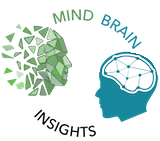It’s reasonable to assume knowledgeble folks (Ph.Ds in neuroscience, cognitive neuroscience…) would be the ones to advance brain science. They have undergone years of training, experimentation, learning and discovery. Knowledge and skills are developed and refined as he or she conducts research, performs experiments, contributes to the literature etc. How could an independent researcher or other “amateur” compete with this?
Yet there is an aspect of science where a non-PH.D contribute: a new conceptual framework, or “paradigm.”
Mainstream brain science is conducted within a given paradigm. Those working within are most qualified to shed light on matters within the paradigm. For example, if the topic is “how does the reward system’s neural activity differ during task X versus task Y?” then a cognitive neuroscientist is in the best position to answer this question. A neurobiologist could best answer “how do individual neurons function.” However if the topic is an entirely new paradigm then, as Thomas Kuhn pointed out in The Structure of Scientific Revolutions, it’s accessible to amateurs. In fact it’s easier for such a person to construct a new paradigm since they are operating outside the constraints of mainstream thought.
For example, consider the brain. How does it work? How does it operate as a whole, through space and time, in relation to the mind? How does it create or enable conscious & unconscious) recognition, identification, thought, motivation, executive control, goals, intention, prediction, attention and so on? How do all of these mental states and processes connect to the brain? How are they represented, computed, mediated or processed?
The mind brain relationship is clearly an example of an unformed paradigm, one in which any consensus is quite vague and in its infancy. There’s no agreement on what the mind even is in the first place (Ascoli 2013). And how it’s manifest in/connects to the brain (the “easy problem of consciousness”) remains unknown as well. With a common task like “reach for my phone — to type an important text regarding a work project” what aspects of the mind, and the brain, will activate? Predictions of what mental states and processes will activate, and the form they will take in the brain — what neural activity will occur where — are vague and only partially accurate.
Overall the mind/brain problem — how mind connects to brain in real time — is an unsettled paradigm.
There’s a bright side to all this for brain scientists. That is, once a mind/brain model is in place, their skills and expertise become all the more valuable. Professionals are necessary to support and optimize a new paradigm, and use it to it’s full extent to solve real-world problems (in BCI, medtech, robotics etc.). Their vast knowledge, skills and understanding are of great value.
The mind/brain problem is a daunting one. It’s a broad, multi-disciplinary topic which includes not only neuroscience but cognitive science, psychology, sociology, phenomenology, neuroimaging and neurophilosophy. A complete model would encompass most of human experience — including all (common) human knowledge and capabilities. To cover all of this territory, breadth more than depth of knowledge is required.
This is where a relative amateur can step in — someone who can research a variety of fields depending upon what is needed at a given state of theory or model development. Ph.D.’s are usually specialists in (and often within) a single field. An amateur on the other hand can easily pick and choose information and ideas from a variety of fields, moving from one to the next as research needs/questions arise. They can easily acquire information in many different fields since they are not tied to one for any financial or career reason.
A second way being an amateur is an advantage is being able to research with an open mind. Independent researchers that are new to a field have few underlying assumptions. They aren’t required to believe anything. There are less pre-conceived notions to set aside, in order to look at a topic with “fresh eyes.” Fewer assumptions, beliefs, group think and ego get in the way of clear, objective outside-the-box thinking.
A Ph.D. on the other hand has absorbed, consciously and unconsciously, a large number of theoretical assumptions. If these are not temporarily set aside, understanding an entirely new set of ideas conflicting with theirs will be difficult.
In short, a brain theory is not only accessible to an amateur, but MORE likely to be developed by one, because: 1) how the brain works is an unsettled paradigm, 2) breadth more than depth of knowledge is needed, 3) existing theoretical assumptions (such as a strict materialism, for example) are more of an impediment than an asset.
References
Ascoli, G.A. “The Mind-Brain Relationship as a Mathematical Problem”, International Scholarly Research Notices, vol. 2013, Article ID 261364, 13 pages, 2013. https://doi.org/10.1155/2013/261364
